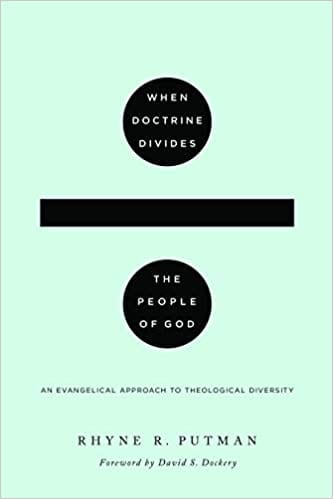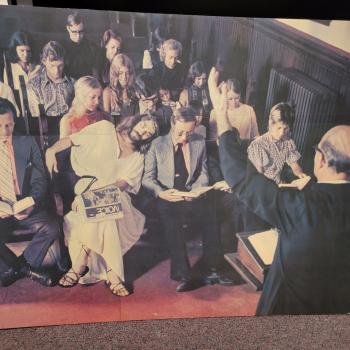BEN: One of the things I have learned over the years is that with most devout Christians their experience of the faith is more profound than their ability to articulate the faith cogently. For example, my Granny certainly believed in the Trinity, but with an eight grade education she could no more articulate this doctrine than she could explain the internal combustion engine, even though she drove a car to the piano store in Wilmington all the time. She trusted that the car and its engine worked and believed it would, and acted on that belief. Similarly, with the Trinity. I tell this story to suggest we must be cautious about how we evaluate inadequate statements by Christians about their faith, even about the essentials. This is all the more true as the church itself becomes increasingly Biblically illiterate. We need to speak the truth of course but in love, and with gentleness, and not leap to push the heretic button. Thoughts?
RHYNE: A hearty “amen” from me here. I’m reminded of that great episode of Seinfeld where George Constanza converts to the Latvian Orthodox Church in order to keep a girlfriend. He has to take an extensive theological test before being confirmed, and he cheats his way through the whole thing. Fortunately, childlike faith in Christ does not have a long theological entrance exam!
The doctrine of the Trinity is a foundational doctrine of the Christian faith, but not one we expect people to cogently describe upon belief. We could say the same thing about the first two to three centuries of the Christian faith. Just as doctrinal development within the Tradition takes time, so too does discipleship, maturity, and growth in theological understanding in our personal walks with Christ.
Michael Wittmer makes a helpful distinction between things we must believe in order to be a Christian, things we cannot reject and remain a Christian, and things we should believe. For a person to be a follower of Jesus, they must believe he is Lord and that God raised him from the dead (Rom. 10:9). When we confuse these categories, we put an unfair burden on believers. They are not expected to be able to explain the hypostatic union or the Trinity! I am convinced that a follower of Jesus immersed in the Scriptures and growing in her understanding will not reject the doctrine of the Trinity (or at least its constituent biblical elements) when properly explained from the Scripture, but that is certainly different from having a fully developed explanation or position. And yes, grace and love should accompany this process as we work through it in discipleship.

















